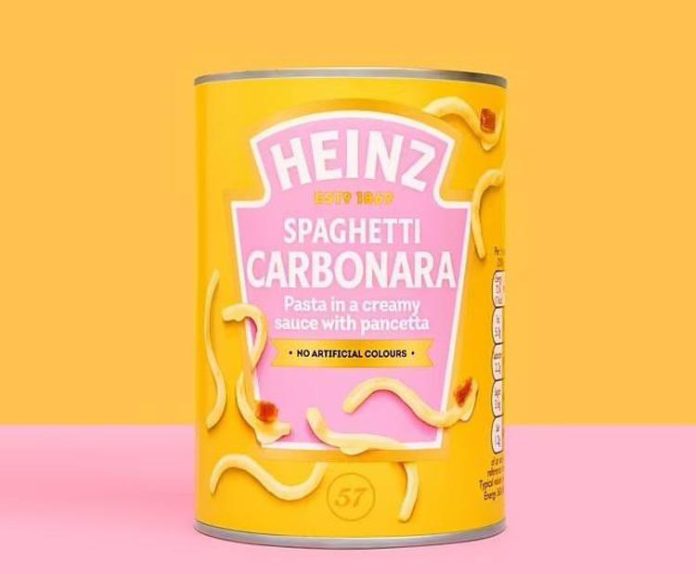by InTrieste
Heinz, the American food giant known for its ketchup and canned beans, has ignited a culinary firestorm in Italy with the launch of a new product: spaghetti carbonara in a can. Set to hit UK supermarket shelves in September, the tinned pasta is being touted as a quick and convenient meal, specifically aimed at Generation Z. But in Italy, where carbonara is a sacred dish, the news has been met with horror, especially in Rome, where the traditional recipe holds deep cultural significance.
The product, priced at £2, features “pasta in a creamy sauce with pancetta” and boasts “no artificial colors.” Alessandra de Dreuille, Meals Director at Kraft Heinz, described it as “the perfect solution for a quick and satisfying meal at home.” However, Italian chefs and food purists are not convinced.
Alessandro Pipero, chef of the Michelin-starred Pipero restaurant in Rome, was scathing in his critique. “It’s like cat food,” Pipero told The Times with disdain. His sentiment echoed widely across social media, where Italians reacted with disbelief and fury. “Is this a joke?” one user asked, while others piled on with remarks like, “I wouldn’t even give it to stray cats” and “Father, forgive them, for they do not know what they do.”
The outrage is rooted in the Italians’ staunch defense of the traditional carbonara recipe, which consists of just five key ingredients: pasta, guanciale (cured pork jowl), pecorino cheese, egg, and black pepper. For many Italians, any deviation from this strict formula is culinary heresy.
This is not the first time carbonara has been at the center of controversy. In 2020, British celebrity chef Gordon Ramsay faced backlash for his interpretation of the dish, which was dubbed a “nightmare carbonara” by enraged Italians. In 2021, The New York Times provoked a similar reaction with its recipe for Smoky Tomato Carbonara, which included ingredients seen as an affront to the original.
Carbonara, which is celebrated in Italy with an annual “Carbonara Day” on April 6, holds a near-sacred status in the country’s culinary canon. Its origins are debated, with some tracing the dish to Rome and others suggesting an influence from American soldiers in Italy during World War II, who used bacon and powdered eggs to recreate their own version of the dish. Regardless of its history, modern Italians are fiercely protective of carbonara’s authenticity.
As Heinz prepares to roll out its canned carbonara to a broader audience, the question remains whether the convenience and appeal to younger generations will outweigh the indignation of traditionalists. In Italy, at least, the product seems unlikely to find many fans.





























